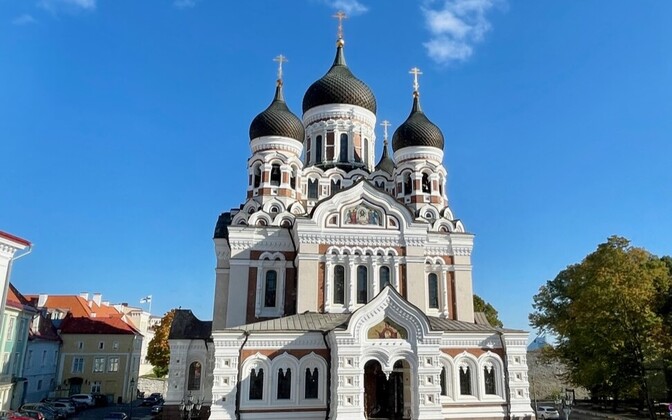ERR News takes a look at the conflict between the Ministry of the Interior and the Estonian Orthodox Church of the Moscow Patriarchate (MPEÕK) and the Kuremäe Convent over Patriarch Kirill’s remarks supporting Russia’s war in Ukraine.
Tensions between the Estonian government and the Estonian Orthodox Church of the Moscow Patriarchate (MPEÕK) center on the church’s ties to the Moscow Patriarchate, led by Patriarch Kirill, who has been a vocal supporter of Russia’s war in Ukraine.
Estonian Interior Minister Lauri Läänemets (SDE) has been outspoken in calling for the church to sever its ties with Kirill and the Moscow Patriarchate, arguing that the church cannot continue to operate under Kirill’s authority given his support for Russian aggression.
In late March, the World Russian People’s Council, and Patriarch Kirill of the Russian Orthodox Church as its chairman, styled the war in Ukraine a “holy war,” approving a document that suggests the territory of Ukraine needs to become part of Russia.
Läänemets has suggested that the Estonian Orthodox congregations should instead align themselves with the Estonian Apostolic Orthodox Church, which operates under the Ecumenical Patriarch of Constantinople, rather than Moscow.
The MPEÕK, however, has resisted these demands, from at first asserting that the Moscow Patriarchate has no sway over its decisions, which is why breaking away is unnecessary, to removing references to the Moscow Patriarchate from its statutes and agreeing to change its name but still claiming that some canonical ties are unavoidable.
In January, Estonia decided not to extend the residence permit of MPEÕK Metropolitan Eugene.
“Estonia decided to refuse to renew the metropolitan’s residence permit as he supports the aggressor [Russia] in his public actions and statements, and hasn’t altered his conduct despite previous warnings, said Indrek Aru, head of the border guard department of the PPA’s North Prefecture. Metropolitan Eugene, legal name Valeri Reshetnikov, left Estonia in February after denouncing the accusations against him as “political.”
In May, the Riigikogu passed a statement condemning the actions of the Moscow Patriarchate in justifying and supporting Russia’s aggression against Ukraine and declaring the Moscow Patriarchate an institution sponsoring Russia’s military aggression.
The Estonian Orthodox Church of the Moscow Patriarchate (MPEÕK) and the Pühtitsa (Kuremäe) Convent have since filed separate complaints with the Tallinn Administrative Court. These complaints seek to address the legal consequences arising from the Riigikogu’s declaration that the Moscow Patriarchate supports the Russian Federation’s military aggression. They also aim to remove the organizations from the list of entities supporting military aggression.
Since the Riigikogu declaration, the Estonian Ministry of Internal Affairs has stepped up efforts to encourage congregations within the MPEÕK to leave the Moscow Patriarchate and join the Apostolic Orthodox Church. The ministry’s officials have been in discussions with church leaders and congregations, trying to facilitate this transition. However, these attempts have met resistance, as many congregations remain loyal to the Moscow Patriarchate and feel uncertain about the potential changes to their religious practices and leadership.
Tensions were further heightened when the Ministry of the Interior expressed dissatisfaction with recent changes to MPEÕK’s statutes. According to the ministry, these changes did not go far enough to limit Moscow’s influence over the church’s activities. Läänemets has reiterated that the Moscow Patriarchate’s control over the church poses a threat to Estonia’s national security, given the current geopolitical climate and Russia’s ongoing war in Ukraine.
The situation remains unresolved, but the Estonian government’s position is clear: the influence of the Moscow Patriarchate over the MPEÕK must be diminished or eliminated. Meanwhile, the church leadership continues to resist calls for a separation, creating an ongoing standoff between the state and the religious institution.
—
Follow ERR News on Facebook and Twitter and never miss an update!
